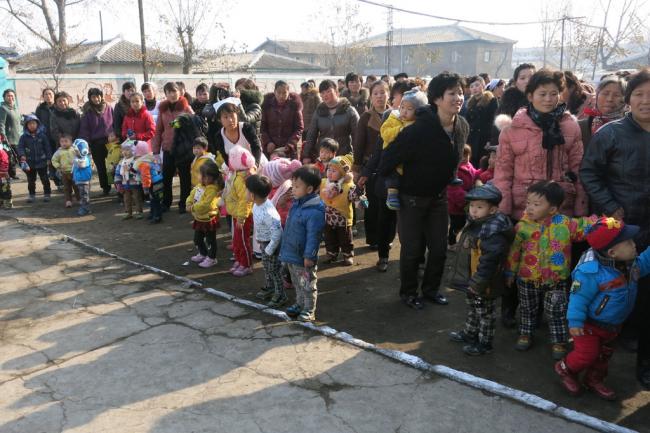
DPR Korea’s ‘totalitarian’ governing structure ‘absolutely denies rights,’ UN expert warns
“The totalitarian governing structure in North Korea absolutely denies rights to its people and its unchecked power appears as strongly entrenched as ever throughout the whole country,” Marzuki Darusman, Special Rapporteur on the situation of human rights in that country, said as he presented his latest report to the Geneva-based UN Human Rights Council.
“The international community must ensure that the senior DPRK leadership, including Kim Jong Un, are held accountable for the crimes against humanity committed in the country,” he said.
Two sides of same coin
Recalling that DPRK conducted its fourth nuclear test on 6 January 2016 and launched a long-range ile on 7 February 2016, Darusman stressed that “the denial of human rights to its citizens internally has made resources available to embark on the path of an aggressive military buildup; these are basically two sides of the same coin.”
Darusman added that, following those military tests, there are increasing references by a number of concerned Governments to a peace treaty to replace the armistice agreement that concluded the Korean War.
“Accountability for crimes against humanity must be an integral part of any discussion about the future of the Korean peninsula, including the scenario of a peace treaty,” he said, underscoring a role played by the international community in ensuring accountability for such crimes.
He also highlighted the possible roles to be played by neighbouring countries, like the Republic of Korea and Japan, which are State parties to the Rome Statute of the International Criminal Court (ICC).
Touching upon the principle of universal jurisdiction that could open the possibility of prosecution in a second country, the special rapporteur called for the establishment of a group of experts to study possible accountability measures.
Independent experts or special rapporteurs are appointed by the Human Rights Council to examine and report back on a country situation or a specific human rights theme. The positions are honorary and the experts are not UN staff, nor are they paid for their work.
Photo: UNICEF/Olga Basurmanova
Support Our Journalism
We cannot do without you.. your contribution supports unbiased journalism
IBNS is not driven by any ism- not wokeism, not racism, not skewed secularism, not hyper right-wing or left liberal ideals, nor by any hardline religious beliefs or hyper nationalism. We want to serve you good old objective news, as they are. We do not judge or preach. We let people decide for themselves. We only try to present factual and well-sourced news.







